Group members:
Mansi Chottani, Kye Li Chia, Ruoxi Song
Research question:
How can we preserve traditions through games?
Our solution
Introducing traditional games to the public through a local traditional games fest
Date:
3rd July - 24th November 2023
We started the week by doing interesting mapping, listing what interests us. From there we picked out the theme we want to explore this week: tradition and culture. This theme is something that we hold close to our hearts as we all grew up in countries filled with rich cultures and traditions. There seems to be a gradual loss of culture and traditions through generations which is mainly caused by the seemingly convenient new technologies and services. Many cultural and traditional skills are slowly being lost and minimised into digital forms. This also means a loss of what those traditions represent or meant (community building, togetherness etc.). Specifically, the next generation of children, with the growing industrialisation and urbanisation will be completely alienated from these cultures and traditions that once thrived.
We were inspired by a video where a girl was learning how to fold traditional Chinese rice dumplings (粽子) from her mother. She was struggling to make it because it was her first time doing it and she refused to let her mother take over, she said that she wants to learn how to do it on her own even if it looks ugly. We also discussed how the younger generation (us included) don’t really know how to cook our traditional dishes as it is time-consuming and they are willing to pay to buy it.
We started exploring the different aspects of culture and traditions which have been lost and finally decided to focus on traditional childhood games which we used to play when we were younger. Our brief is to design a way to preserve traditions through games and we want to do this by bringing traditional childhood games into public spaces.
Through research papers, we found that physical outdoor childhood games have many benefits to children such as agility, problem-solving, creativity and social behaviour (Sulistyaningtyas and Fauziah, 2019; Balci and Ahi, 2017).
We also conducted a short survey across 21 participants and we found that 100% of the participants have grown up playing traditional childhood games, 76% would encourage their kids or young siblings to play traditional games, 85% would want to learn a traditional game from a different country, and 88% think traditional games are somewhat or not popular at all now.

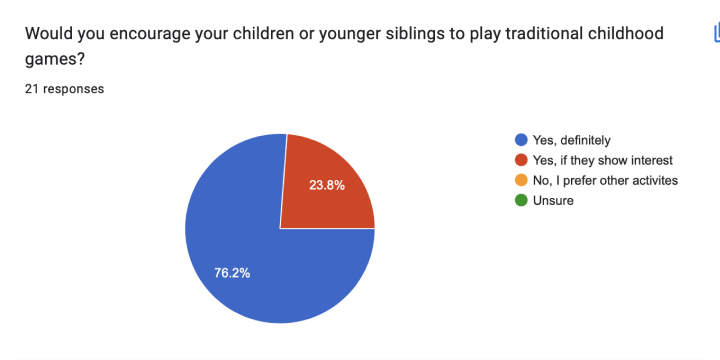
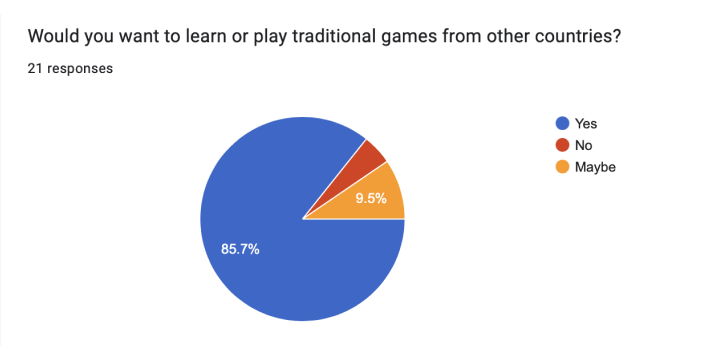

We also looked into the traditional games from our home countries: India, China and Malaysia, as well as England. We realised that most of the games we played always involve a modified version where we would use materials we found in our surroundings to play the games. We didn’t need premade toys to play our childhood games. We went to a park and tried to replicate various childhood games with materials we found in the park.
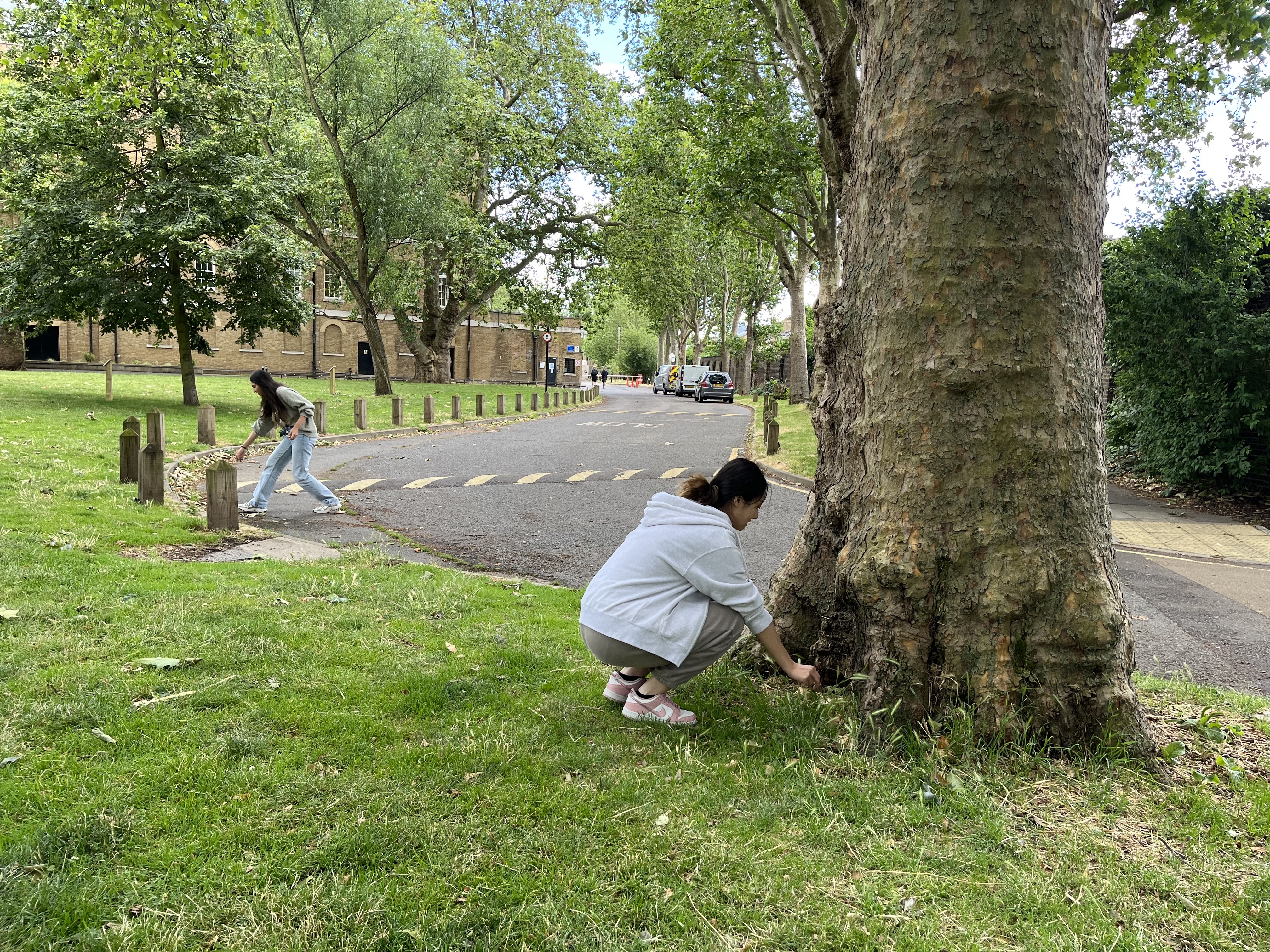
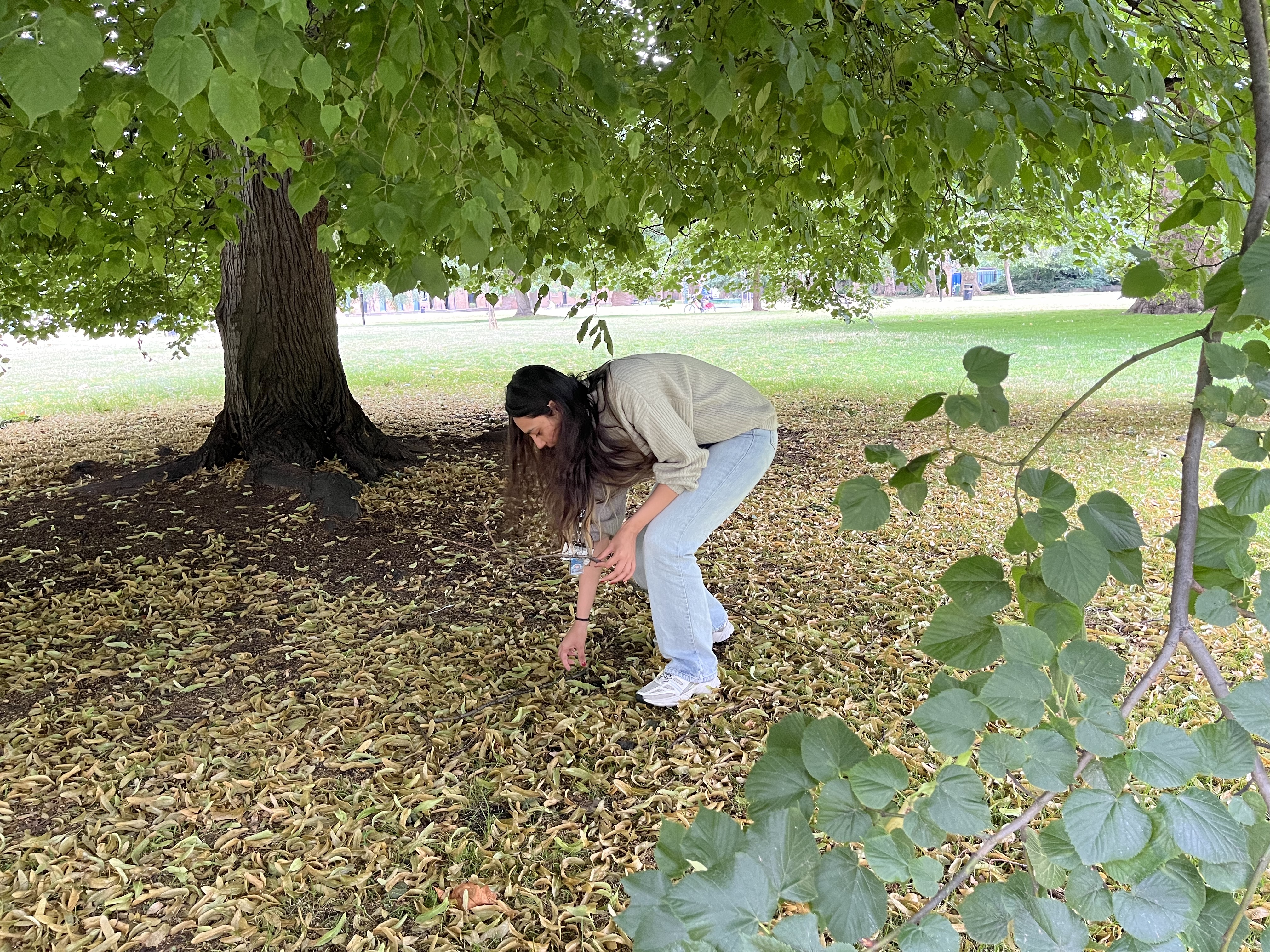

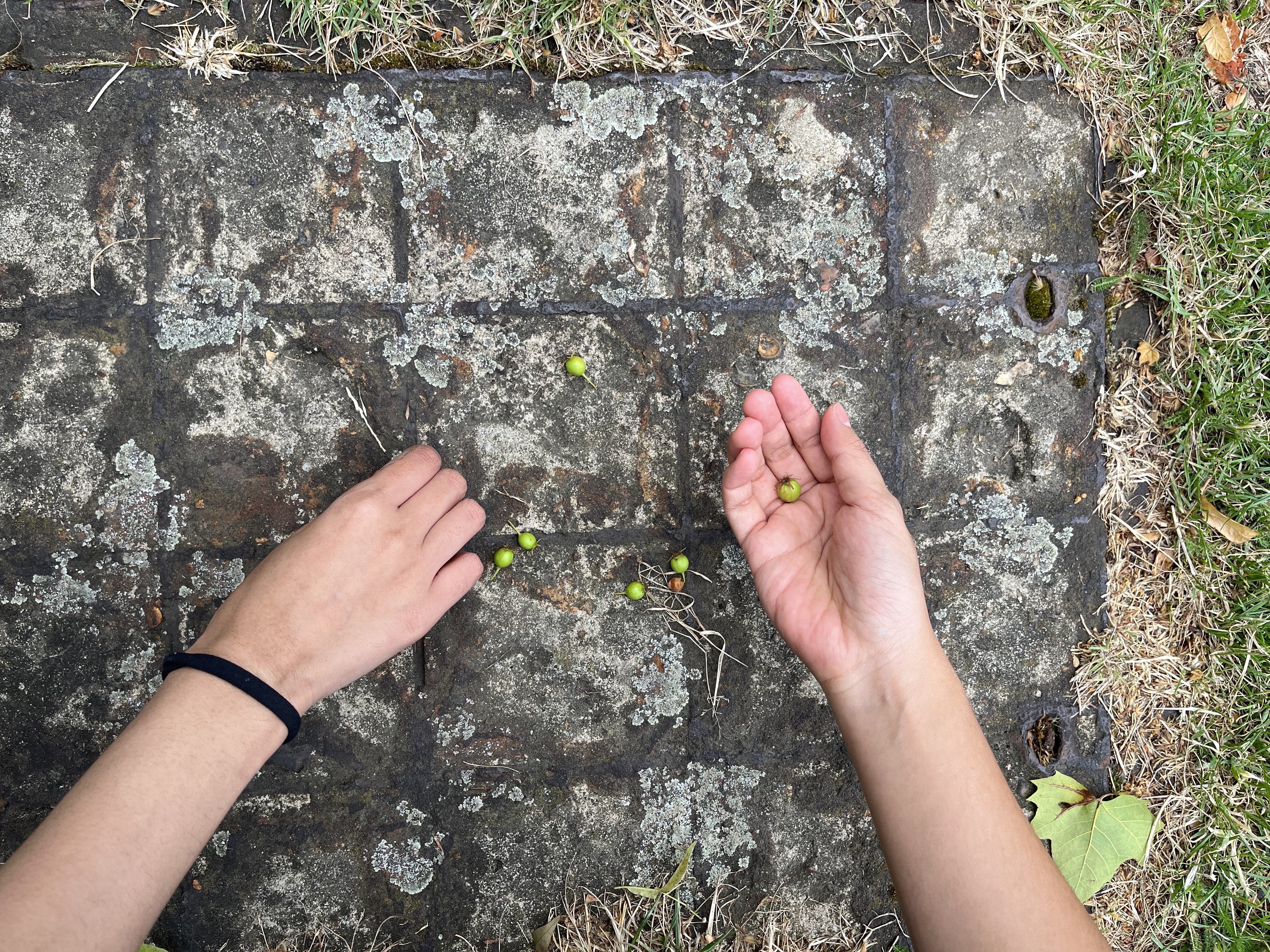

While doing this activity, we noticed that we became more aware of our surroundings during the material seeking process and that this way of playing games allows everyone to participate as you can easily find materials in the park to play with. We designed a set of infographics which teaches the public how to play childhood games with the materials in the park. We included games from various countries to promote and encourage the sharing of cultures and traditions between countries.
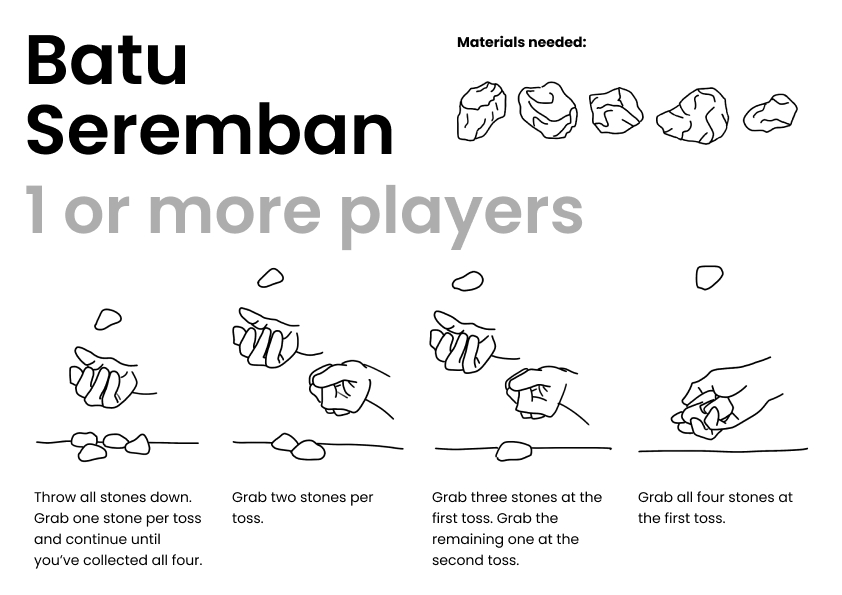



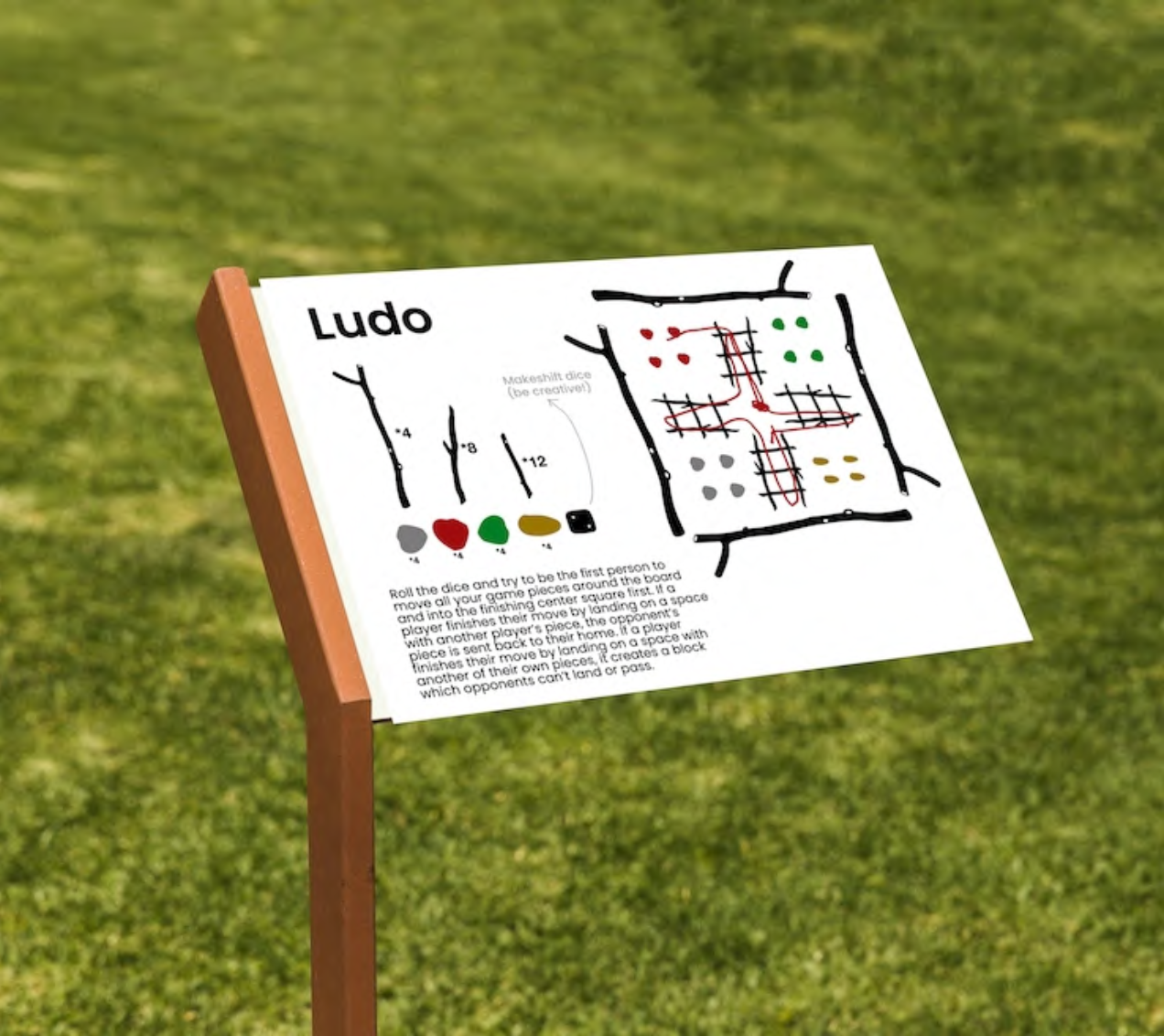
Bibliography
Balci, S., & Ahi, B. (2017). Mind the gap! Differences between parents’ childhood games and their children’s game preferences. Contemporary Issues in Early Childhood, 18(4), 434–442. https://doi.org/10.1177/1463949117742788
Sulistyaningtyas, R.E. and Fauziah, P.Y. (2019) The implementation of traditional games for early childhood education, The Implementation of Traditional Games for Early Childhood Education | Atlantis Press. Available at: https://www.atlantis-press.com/proceedings/iccie-18/125910410 (Accessed: 04 July 2023).